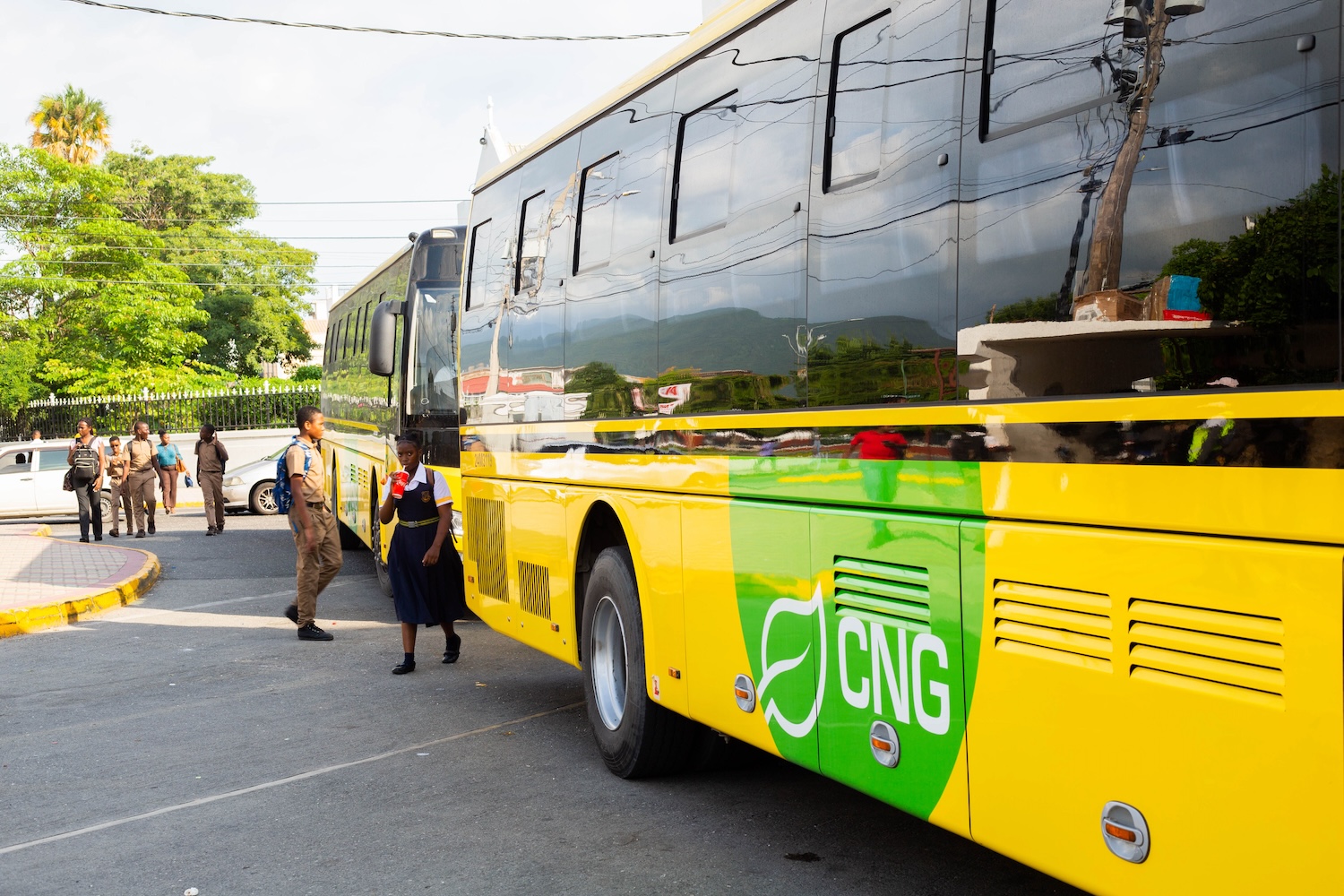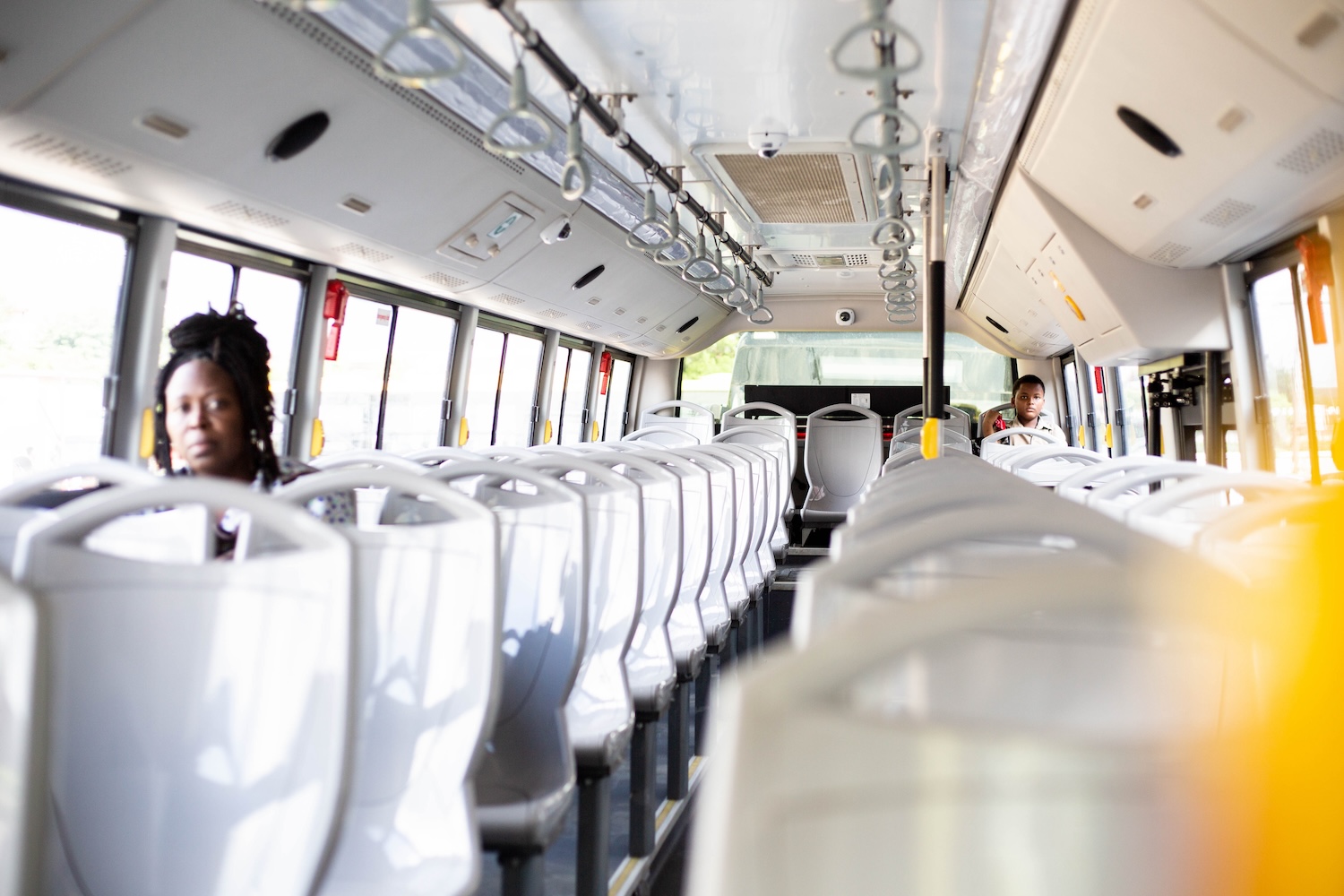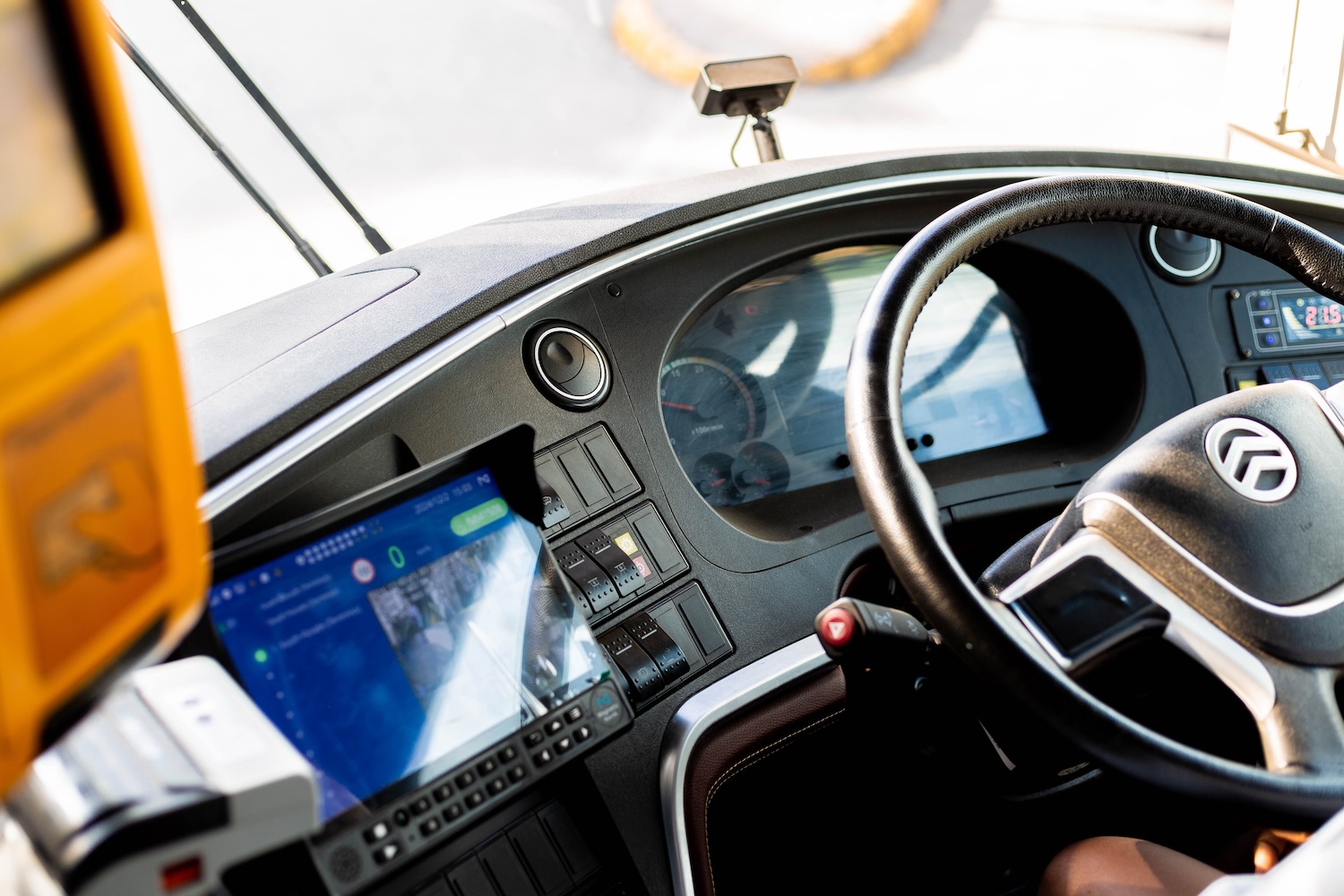
(Image courtesy of Jamaica Urban Transit Company.)
Kingston City, the capital of Jamaica, is one of the tourist hotspots of the island and the center of business and commerce. In many ways, this central designation was a beacon for those in small rural towns across the island for generations. The result is a city that is jam-packed.
On its best days, Kingston’s peak traffic lasts a solid four hours. On rainy days, the city almost stands still. Motor vehicle ownership increased dramatically over the past decade, and Jamaica’s car market is expected to reach $80 million USD by 2029.
In other major cities, like London and New York, transport systems like large buses and trains help alleviate traffic congestion — along with the air pollution and emissions produced by cars idling. The Jamaica Urban Transit Company is a bus company aims to do the same in Jamaica. A new fleet of buses fueled by compressed natural gas (CNG) is its latest attempt to reduce emissions within the city and, ultimately, the island’s transportation systems. CNG is a gasoline and diesel alternative made primarily of methane.
For developing nations like Jamaica, accessing climate finance requires adhering to the United Nations-backed Paris Agreement, which is updated and negotiated yearly at the global climate talks, like the recent COP29. The agreement accepts the fact that all countries contribute to greenhouse gas emissions in different portions and on different levels. That understanding charged all member states to commit to reducing emissions within a set framework. And the commitment is the foundation of other agreements such as climate financing for more vulnerable countries.
Back in January, Nigel Clarke — who was Jamaica’s minister of finance and is now the deputy managing director at the International Monetary Fund — promised to bolster the Jamaica Urban Transit Company (JUTC) fleet despite a reduction in the annual budget. The promise included 300 new buses, and the first 100 arrived in July.

As a result, the company’s Portmore Depot — which houses, maintains and refuels the new CNG buses — transported over 2 million passengers between September and November. JUTC also reports a 22 percent reduction in carbon dioxide emissions compared to its diesel counterparts.
“The move to transform our fleet from primarily diesel-burning units to CNG was made for three main reasons: to diversify our fuel mix, to become a more environmentally friendly, responsible company, and to eliminate fuel pilfering opportunities,” said Romain-Khade Gayle, JUTC’s deputy managing director of operations.
The first two goals present more overtly because of the nature of this alternative fuel source. Air quality, for instance, is affected by such a switch because CNG produces substantially fewer nitrogen oxides and soot than diesel. Nitrogen oxides have the potential to negatively impact public respiratory health.
The third goal is in response to an issue in which bus fuel is stolen to be resold, costing the company millions of dollars each year. CNG eliminates the resale value, saving the company money it would be losing otherwise.

Switching to CNG buses also limits greenhouse gas emissions that contribute to climate change. “The use of CNG significantly reduces harmful vehicular exhaust gas emissions like carbon dioxide, carbon monoxide and other suspended particles,” Gayle said. “It protects the environment by reducing the effects of global warming. It is also non-toxic, non-corrosive and non-carcinogenic.”
Islands like Trinidad and Tobago are also looking toward CNG to help meet their decarbonization goals.
“This is a great model for all of us,” said Brendon James, vice president of the Sustainability Institute of Trinidad and Tobago. “Trinidad and Tobago is ordering battery and CNG buses to replace the diesel fleet. The benefits are too good to ignore. Battery technology is still expensive, so having CNG technology is critical for the transition.”
The initiative in Trinidad and Tobago is strengthened by the renewed interest and an increase in CNG vehicle sales, James said. But CNG is still a fossil fuel harboring its own pros and cons.
“I believe CNG plays an important role, however there is a caveat,” James said. “CNG is still a hydrocarbon that emits greenhouse gases. It is less than gasoline, but it must still be considered a pollutant. With that said, I still see CNG playing a transitional role in the energy transition of the transport sector, especially for buses and some heavy-duty trucks.”

Transition is a key word for Jamaica, which updated its national target under the Paris climate agreement to include a more than 25 percent reduction in emissions by 2030. The new CNG buses are a part of the larger plan to hit that target.
It’s possible to quantify the exact savings and environmental benefits of the new buses, but doing so “will require transport data, fleet data, age of buses, diesel consumed, miles traveled, et cetera, on the existing fleet compared to CNG,” James said.
In the meantime, this transitional fuel represents a bridge to an emission-free future, enabling the company to retain income that could facilitate sustainable development and even the acquisition of zero-emission buses.
Refueling one of JUTC’s diesel buses costs almost $400 USD, Gayle said, while the CNG buses run just about $130 USD worth of fuel. This saves the company over $20,000 USD each time it refuels the new fleet.

Gladstone H Taylor is an author/journalist living and operating out of the creative industries of Kingston, Jamaica. He has been writing professionally for over eight years. He’s reported on the environment, culture, music, film, and tech through platforms such as Mongabay, The Fader, Sole DxB, Bandcamp, The Face Magazine, RollingStone, Afropunk, Syfy Wire, and PopDust, to name a few. He is a member of Covering Climate Now and Uproot Project.














